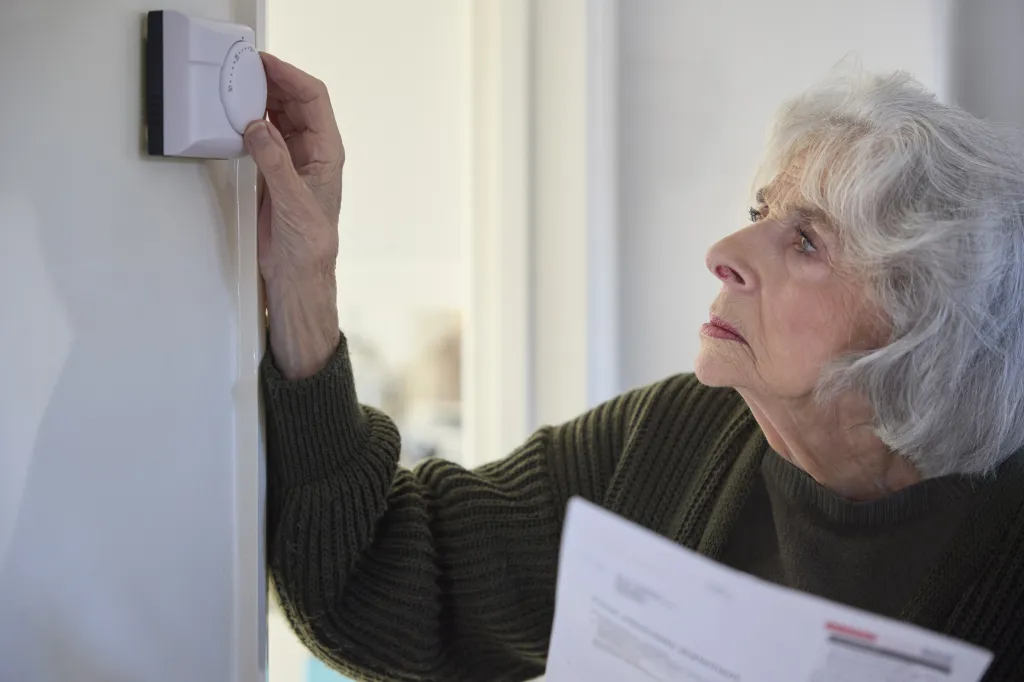By Adele Cooke
Copyright thescottishsun

MILLIONS of households across the UK will see their annual energy bill rise by £35 from October.
The energy price cap is set to increase from £1,720 a year to £1,755, piling further pressure on families already struggling to make ends meet.
But an easy trick can knock £90 off your bills, helping you to keep warm this winter without breaking the bank.
The Energy Saving Trust said turning your thermostat down by just one degree can save you £90 a year in Great Britain.
Meanwhile, doing so in Northern Ireland could shave £100 off your bill.
You should set your thermostat to the lowest comfortable temperature for your needs, it added.
For most people, this is between 18 and 21 degrees.
That means turning your thermostat down from 22 to 18 degrees could save you £360 a year.
But if you have a health condition that could get worse because of the cold then you shouldn’t set your thermostat lower than 21 degrees.
The exact amount of money you will save by turning your thermostat down depends on the size of your home, how quickly it loses heat, how many hours your heating is on for, how mild the winter is and the tariff you have for your energy bills.
Of course, the easiest way to cut your bill is to not turn your heating on at all.
But as the temperature plummets, not turning on your heating can cause health problems.
It can also lead to expensive issues with your home including burst pipes.
How can I control my thermostat?
A good way to start is to turn your thermostat down by one degree and see how it feels.
With a digital or smart thermostat simply press the up and down arrows to lower the temperature.
Meanwhile, for a dial-type thermostat, just turn the dial anticlockwise.
You could save even more money with a programmable thermostat, which you can set to control your heating based on whether you are at home, out or asleep.
Installing a programmer, thermostat and thermostatic radiator valves can save you £110 a year on your energy bill in Great Britain, or £120 a year in Northern Ireland.
A programmer allows you to set on and off time periods for your central heating.
Typically, you should set the central heating programme to:
Turn on around half an hour before you get up.
Turn off around half an hour before you go to bed.
Check that the programmer is not automatically set to turn your heating on when the clocks change in spring and autumn.
You should check your thermostatic radiator valves (TRVs) to make sure you’re not heating rooms you don’t use.
TRVs are the controls on your radiator that let you set its individual temperature.
They’re usually attached to one of the pipes that goes into your radiator and have a dial with numbers on it that you can adjust.
Is it cheaper to leave my heating on all day?
In most homes, leaving your heating on all day will not save you money.
Instead, it’s best to turn it on only when you need it.
When your heating is on all day your home is steadily losing heat and you never benefit from the warmth as it is at such a low level.
This is especially true if your home is draughty or poorly insulated.
Plus, there’s no point heating your home if you’re out.
It’s also more cost-effective to turn your heating off at night and stay warm with a high tog duvet or extra blanket.
But there are a couple of exceptions to this rule.
You may want to keep your heating on low if you have underfloor heating.
This is because it can take a long time to warm up, so it’s more effective when left on.
Meanwhile, if your home struggles with condensation, then it’s worth keeping your heating on at a steady level to stop the condensation building on warm surfaces such as walls and windows.
If it’s left unchecked then condensation can cause damp and mould.
Meanwhile, if you have a heat pump then it could be a good idea to leave your heating on.
This is because heat pumps are most efficient when they maintain a stable background heat as they deliver warmth at lower, consistent temperatures.
You can also keep your home warm by investing in insulation, sealing leaks and draughts, closing your curtains or upgrading your boiler.
Do you have a money problem that needs sorting? Get in touch by emailing money-sm@news.co.uk.
Plus, you can join our Sun Money Chats and Tips Facebook group to share your tips and stories



